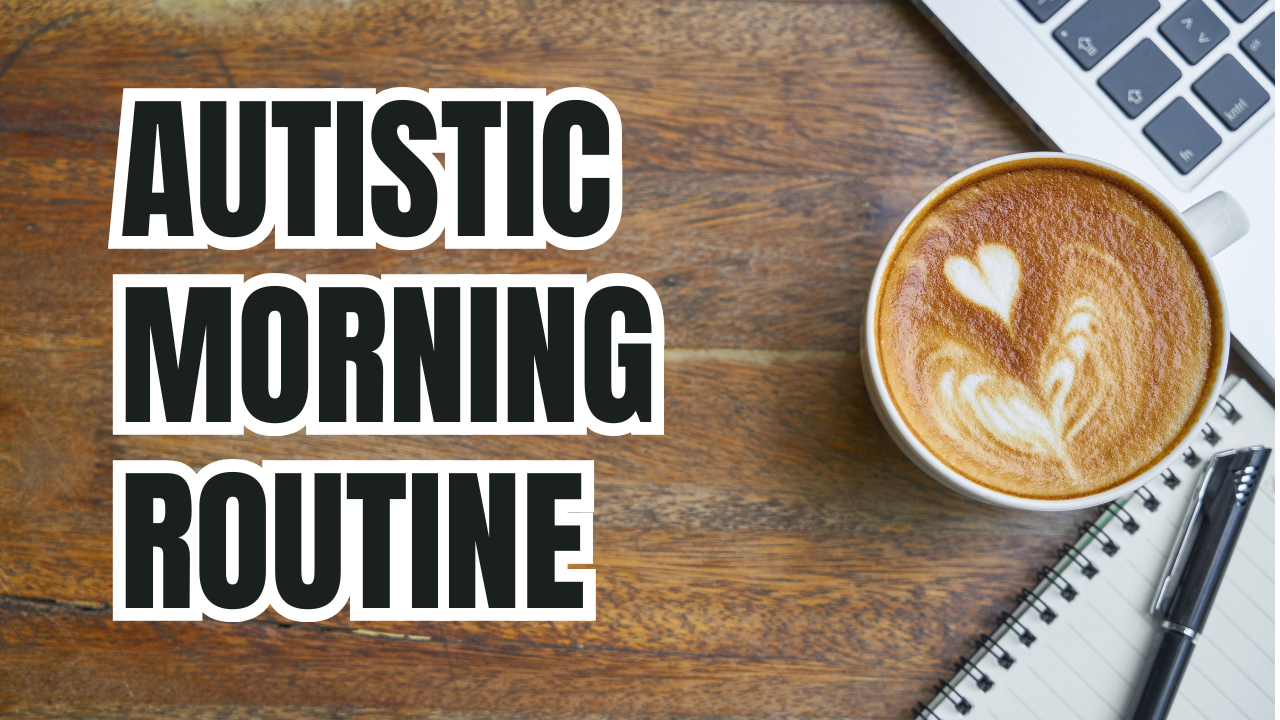Day in the Life of an Autistic Entrepreneur Part 1: Morning Routines & Deep Work
Jan 01, 2025
As an autistic entrepreneur, I've learned that success isn't just about productivity – it's about creating systems that work with my neurodivergent mind, not against it. In this first part of a three-part series, I'll take you through my typical morning, sharing how I support both my autistic needs and entrepreneurial goals while protecting myself from autistic burnout.
Autism and Morning Routines: Why Traditional Advice Doesn't Work
I wake up naturally between 8 and 9 AM without an alarm. This might surprise some people, especially since a common piece of advice for neurodivergent people is to utilize alarms and subscribe to fancy time management apps. However, as an autistic woman who lives with permanent anxiety, I've found that alarms overactivate my nervous system.
Interestingly, an alarm-free start to my day is a complete shift from my past approach. I used to set an alarm every morning as a way to ease my anxiety, believing that maintaining the exact same wake-up time would provide stability. But just as making peace with the unknown and learning to trust my body was key to my recovery from an eating disorder, I've learned that trusting my body's need for rest is crucial in preventing autistic burnout – something all too common among neurodivergent entrepreneurs.
From Mental Rehearsal to Physical Needs: The Autistic Balance
My first thought upon waking is always about coffee (who else goes to bed looking forward to their morning cup?). But patience is key here. Instead of rushing to the coffee maker, I follow a deliberate routine: open the sheets to air out, handle bathroom duties, and brush my teeth. During these tasks, I'm mentally rehearsing my day's schedule and priorities, even though I've already planned everything the day before. The autistic brain never tires of planning!
Hydration comes next – two large glasses of water with my medications and vitamins. This is particularly important for autistic individuals who might struggle with interoceptive awareness (the ability to sense internal body signals). Creating structured routines around basic needs like hydration and eating helps compensate for these challenges.
Channeling Morning Energy: An Autistic Writer's Strategy
Finally, it's coffee time! Because I don’t like waiting, and because my fight-or-flight energy is usually highest in the morning, I’ll engage in some quick exercise, usually pushups or jumping jacks. Once my coffee is ready, I add a scoop of collagen, which can be particularly beneficial to autistic people for its ability to support gut health and reduce joint pain. Then, I move straight into whatever writing project I’m currently working on.
This leads me to one of my top productivity tips for autistic entrepreneurs: tackle your most important work first thing in the morning. We live in a world of constant notifications, and I used to feel compelled to clear my inbox first thing to relieve the pressure. However, I've learned that this "busy work" doesn't actually move the needle in my business. For me, writing – especially working on my books – brings the most joy and creates the greatest impact.
I dedicate 1-2 hours to writing, following Ernest Hemingway's wisdom: "Write one true sentence" and "always stop when you know what is going to happen next." This approach helps maintain trust with myself and prevents creative burnout by ensuring I never completely drain my creative well.
My Autism Breakfast: Always The Same!
By this point, I'm ready for breakfast, which is always the same thing: cauliflower protein oatmeal from my cookbook. On the rare occasion that I fancy something different, I’ll take inspiration from Nourishing Neurodiversity, which contains over fifty autism-friendly recipes! Trying new foods can be really challenging for autistic people (especially if they also have an eating disorder) which is why it's essential to have a reliable set of safe foods that meet your nutritional needs.
Vanilla Cauliflower Protein Oatmeal from the Nourishing Neurodiversity cookbook. Added flaxseeds for extra fiber. Topped with blueberries and almond butter for a healthy autism breakfast that's both nutritious and delicious!
Having predictable, enjoyable meals reduces daily decision fatigue and anxiety around food choices. For me, perfecting the recipes in my neurodivergent cookbook was a game-changer. They combine familiar, nutritious ingredients, making it easy to fuel my body without triggering sensory overwhelm or food-related stress. If you're autistic and struggle with food variety, remember that it's okay to have a limited rotation of meals as long as they nourish you and feel safe for your body.
Speaking of making food choices that work for your neurodivergent brain, here's another controversial take on eating. Unlike many wellness influencers, I don't practice "mindful eating." As I discuss in my post on Neurodivergence and Intuitive Eating, traditional mindful eating often doesn't work well for people with autism and ADHD. Instead, I enjoy my breakfast while watching Netflix, letting my writer's mind rest after an intense morning of creative work.
Movement, Media, and Messages
After breakfast, I take a walk to get some fresh air. The exact time depends on what time I woke up and how much time I spent writing, but this usually happens around 11am. I walk for about 20-30 minutes and this is really the first time I check my phone. On my walk, I'll spend a few minutes responding to notifications, and the remaining time listening to an audiobook or podcast. By noon, I'm back home and ready to tackle emails, podcasts, blogs, and anything else that involves connecting with my audience. After protecting my morning for deep work, I can fully focus on sharing my message with the world!
This is Part 1 of a 3-part series on navigating entrepreneurship as an autistic individual. Read Part 2 to learn about my afternoon routines and productivity systems!







